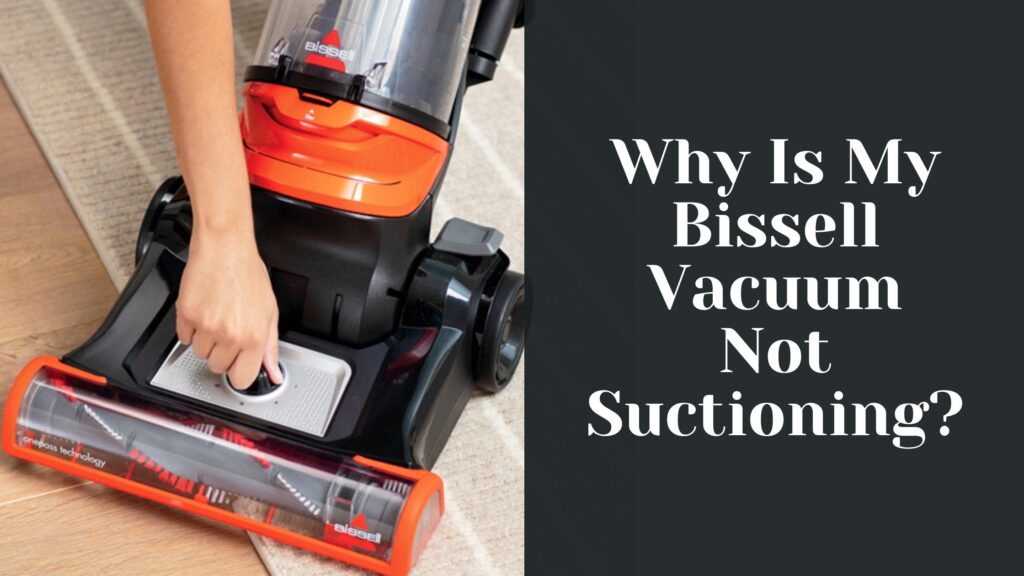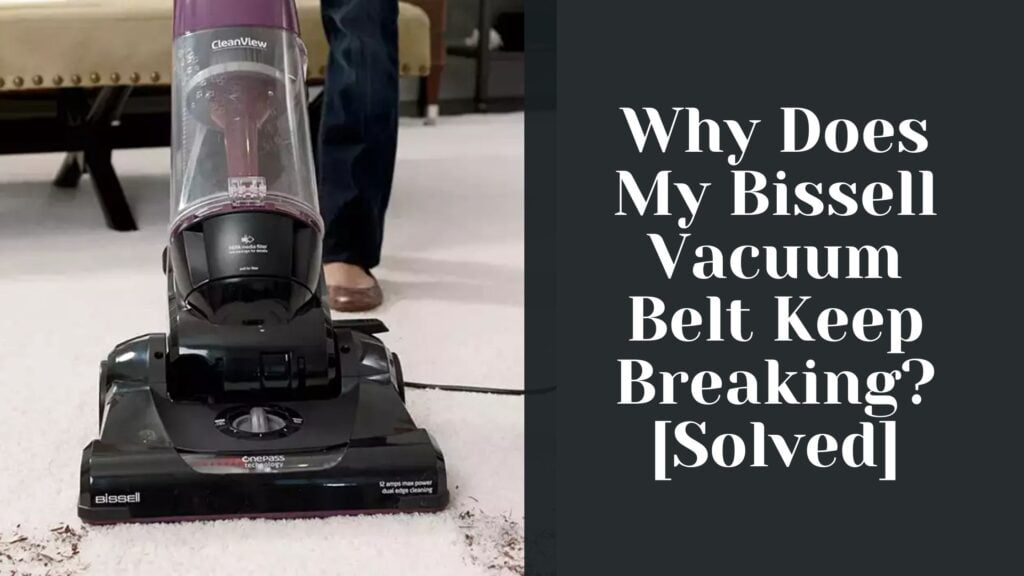Vacuum cleaners are an essential tool for keeping our homes clean and saving ups from dreaded sweeping chores!
However, they do consume a significant amount of electricity.
With increasing concerns about energy consumption and environmental impact, it’s essential to understand how much electricity our household appliances consume, including vacuum cleaners.
In this article, we’ll explore the electricity consumption of vacuum cleaners, the factors that affect it, and how to choose a more energy-efficient vacuum cleaner.
Do Vacuum Cleaners Use A Lot Of Electricity?
Vacuum cleaners consume a moderate amount of electricity compared to other household appliances.
The average power consumption of an upright vacuum cleaner is around 600 to 1400 watts, but this can vary depending on the model, suction power, and type of flooring being cleaned.
For example, a vacuum cleaner with a high suction power will use more electricity than one with a lower suction power.
Carpets require more suction power than hard floors, which means more electricity is consumed when vacuuming carpets.
Additionally, the length of time a vacuum cleaner is used affects its electricity consumption, so it’s essential to use your vacuum cleaner efficiently and only use it when necessary.
Types Of Vacuums That Use Less Electricity
If you’re concerned about the amount of electricity your vacuum cleaner uses, there are several types of vacuums that consume less power.
1. HEPA Vacuums
High-efficiency particulate air (HEPA) vacuums use a special filter that captures smaller particles of dust and allergens than a regular vacuum cleaner.
This means that they require less suction power, which translates to lower electricity consumption.
Additionally, HEPA filters are more durable and long-lasting, which means less waste and fewer replacements.
2. Cordless vacuums
Cordless vacuums are battery-operated, which means they don’t require a power cord.
They typically have lower suction power than corded vacuums, but they are convenient and consume less electricity.
Additionally, they are quieter and more maneuverable, making them suitable for cleaning small spaces or hard-to-reach areas.
3. Robot vacuums
Robot vacuums are autonomous, which means they clean your floors automatically without any human intervention.
They typically consume less electricity than regular vacuums as they only clean the necessary areas.
Additionally, they are convenient for people who have limited mobility or cannot vacuum regularly.
Tips On Lowering Electricity Consumption When Using A Vacuum Cleaner
Here are some tips on how to reduce your vacuum cleaner’s electricity consumption:
1. Choose The Right Vacuum Cleaner
Choosing an energy-efficient vacuum cleaner is the first step in reducing your electricity consumption.
Look for vacuums with the ENERGY STAR label, which means they are designed to use less energy.
However, don’t just buy a vacuum for its ENERGY STAR label. Taking your needs and lifestyle into account is also really important and will help you narrow down to buying vacuum types like cordless or robot vacuums.
2. Use The Right Settings And Attachments
Using the right settings and attachments on your vacuum cleaner can help reduce its electricity consumption.
For example, using a low suction power setting when cleaning hard floors will consume less electricity than using a high suction power setting.
Using the right attachments, such as a crevice tool or dusting brush, can also help you clean more efficiently, which, in turns, will allow you to consume less electricity.
3. Maintain Your Vacuum Cleaner Regularly
A dirty or clogged vacuum cleaner will consume more electricity as it requires more suction power to clean effectively.
Therefore, it’s important to clean and maintain your vacuum cleaner regularly to ensure it works efficiently.
This includes:
- Cleaning the filter
- Emptying the dustbin
- Checking the brushes for any hair or debris
4. Use The Right Vacuuming Techniques
Vacuuming efficiently can also help reduce your vacuum cleaner’s electricity consumption.
For example, vacuuming in straight lines rather than a back-and-forth motion can help you cover more ground in less time, which means you’ll consume less electricity.
Furthermore, vacuuming in a consistent direction can prevent you from having to go over the same spot multiple times, which can also save time and energy.
Other Factors That Affect Electricity Consumption When Using A Vacuum Cleaner
Aside from choosing certain types of vacuums and using the right techniques, there other factors that can impact electricity consumption when using a vacuum cleaner.
1. The Size Of The Space Being Vacuumed
The size of the space being vacuumed can affect electricity consumption.
Larger spaces will require more vacuuming time, which means more electricity consumption.
If you have a large house, consider investing in a more efficient vacuum cleaner to reduce your energy usage.
2. Cleaning Frequency
The frequency of vacuuming is another factor that can affect electricity consumption.
Vacuuming less frequently can help reduce your overall energy consumption.
However, this should be balanced with maintaining a clean and healthy home environment.
3. Type of Flooring
The type of flooring or surface being cleaned can also impact electricity consumption.
Carpets require more suction power than hard floors, which means more electricity is consumed when vacuuming carpets.
If you have both carpets and hard floors, consider using a vacuum cleaner with adjustable suction power to reduce energy consumption on hard floors.
Conclusion
Vacuum cleaners are a necessary tool for maintaining the cleanliness and hygiene of our homes.
However, they can also be a significant consumer of electricity.
Understanding the factors that affect a vacuum cleaner’s electricity consumption, such as suction power, flooring type, and frequency of use, can help you choose a more energy-efficient vacuum cleaner and reduce your energy usage.
By following these tips, such as choosing a HEPA or cordless vacuum, using the right settings and attachments, and maintaining your vacuum cleaner regularly, you can save money on electricity bills and contribute to a more sustainable future.


















